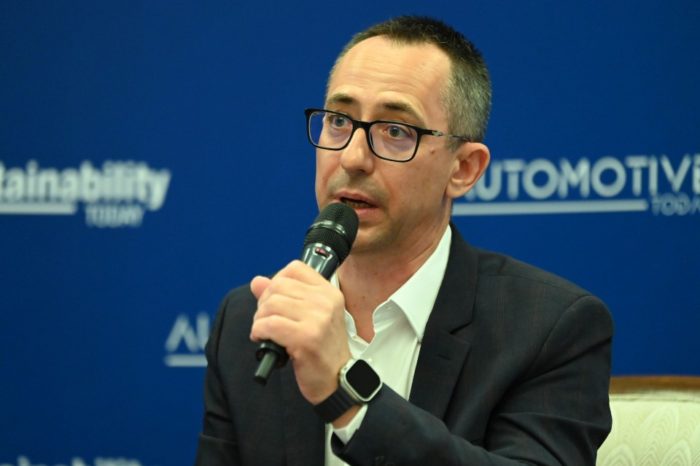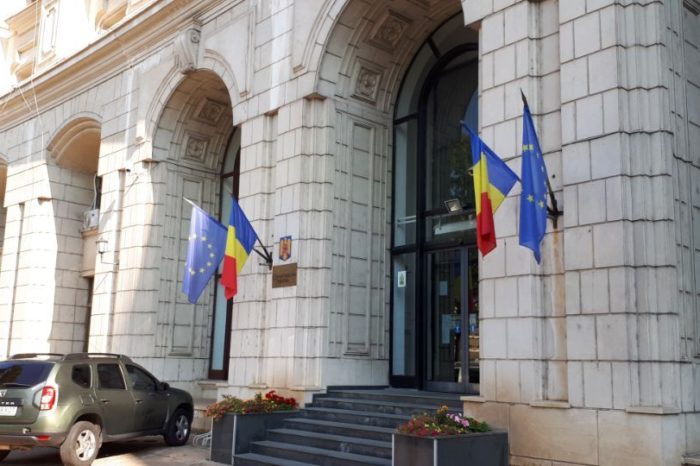Constantin Damov, Green Group: “We support the introduction of a master’s degree in circular economy in the university curriculum”

“We support the introduction of legislation on the recycling and reuse of textile waste, as well as the introduction of a master’s degree in circular economy in the university curriculum,” Constantin Damov, President of Circular Economy Coalition (CERC) and President of Green Group, told The Diplomat-Bucharest.
“At the same time, we are considering the development of a carbon footprint calculator, in two phases: for individual consumption and, subsequently, as a standard procedure for industries.
We will make sustained efforts to bring together the Ministry of Environment and the Ministry of Economy. This is because we are talking about an economic model and enormous efforts that must be made in order to make the transition from the linear to the circular model.”
How can Romania accelerate the transition to a circular economy?
By transforming the circular economy into a strategic objective of the country, through a firm political commitment. There must be horizontal cooperation between the Ministry of Economy and the Ministry of the Environment, with a view to assessing the efforts needed to accept the circular model at industry and social level.
What concrete objectives should be introduced in the National Strategy for the Circular Economy?
Creating a repair industry for reuse (electronic equipment, furniture, textiles, toys, etc.) in order to extend the life of the products; at the same time, the recovery of rare, strategic materials for Europe and Romania, such as: copper, tin, tantalum, lithium, gold, platinum, cobalt, rare-earth elements.
I also mention the importance of eco-design legislation for products placed on the Romanian market, with penalties and incentives depending on the repairability and recyclability of the products.
What are the ways in which central and local authorities can promote and support responsible consumption of resources?
Beyond the much-needed awareness-raising campaigns, balanced and well-targeted penalty and regulatory formulas there should be tools for central and local authorities to direct consumption towards the circular economy model.
Food waste, mixed collection, waste incineration, excess emissions should all be taken towards efficient consumption, aiming at the full reuse and recovery of material resources from post-consumer waste.
When will we see the “Pay as you throw” concept implemented nationwide?
Although since 2019 there is the legal provision “pay as much as you throw”, at the level of local authorities and sanitation services no solutions have been found for the implementation of a fair system of this type. Its implementation would remove an existing barrier in the waste management system in Romania, pushing the citizen to that minimum effort of separation at source. This separation by type of material will be able to generate clean, higher value streams, and will increase the likelihood that the waste will be recycled.
Global warming is a “you pay as you throw” answer.
What objectives should Romania have regarding the increase of the reuse and recycling rate of municipal waste?
Romania is at the bottom of the list of Member States, both for reuse and recycling. The introduction of gradual and ambitious but achievable targets, at a pace that would make it possible for Romania to get closer to the countries at the top of the waste management ranking, should be the constant concern of any government.
Reuse rates of over 15% and recycling targets of over 70% are minimum figures at European level, and the gap that exists today between Romania and the European average should disappear by 2030 at the latest. This sustained transition can only be made with an unprecedented political commitment.
How can we leave the EU’s last place in terms of waste management?
We will remain in last place as long as we keep the same policy of eternal transition. Firm and urgent measures are needed to prevent the flow from the consumer to the landfill. The pit tax, “you pay as much as you throw away”, the extended liability of the producer and, in general, “the polluter pays”, are principles from which no derogations should be made.
Penalty systems, such as the landfill fee, should be applied without delay by local authorities. Along with models such as the warehouse guarantee system for packaging, these are two directions that can bring immediate results and can propel Romania a few places higher in the European ranking.
What are the most important projects of the Coalition for the Circular Economy in 2021?
We promote the elaboration and introduction in Romania of the law to formalize the way in which the specific operations of reconditioning the obsolete electrical and electronic equipment are performed.
We support the introduction of legislation on the recycling and reuse of textile waste, as well as the introduction of a master’s degree in circular economics in the university curriculum.
At the same time, we are considering the development of a carbon footprint calculator, in two phases: for individual consumption and, subsequently, as a standard procedure for industries.
We will make sustained efforts to bring together the Ministry of Environment and the Ministry of Economy. This is because we are talking about an economic model and enormous efforts that must be made in order to make the transition from the linear to the circular model.















